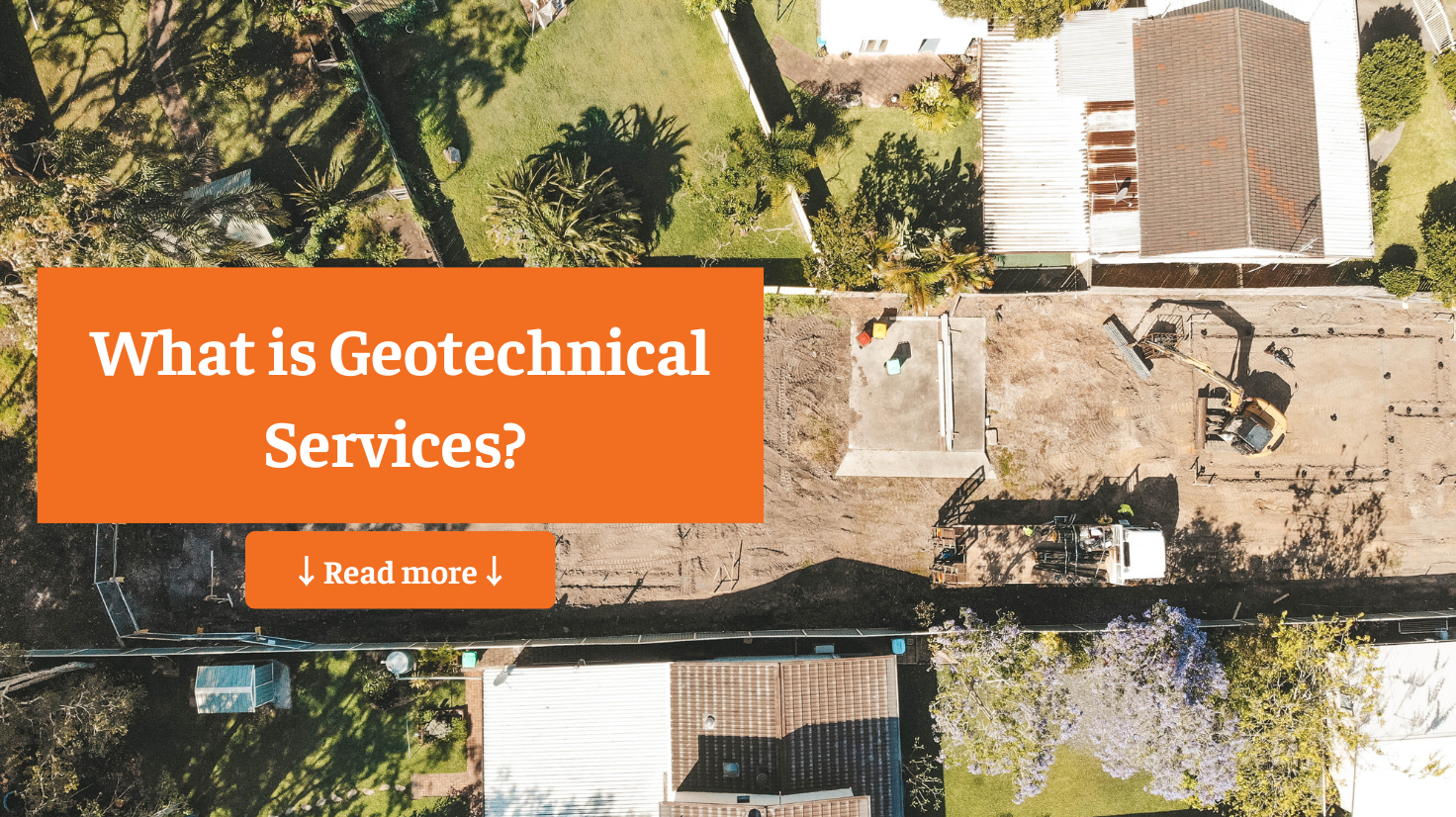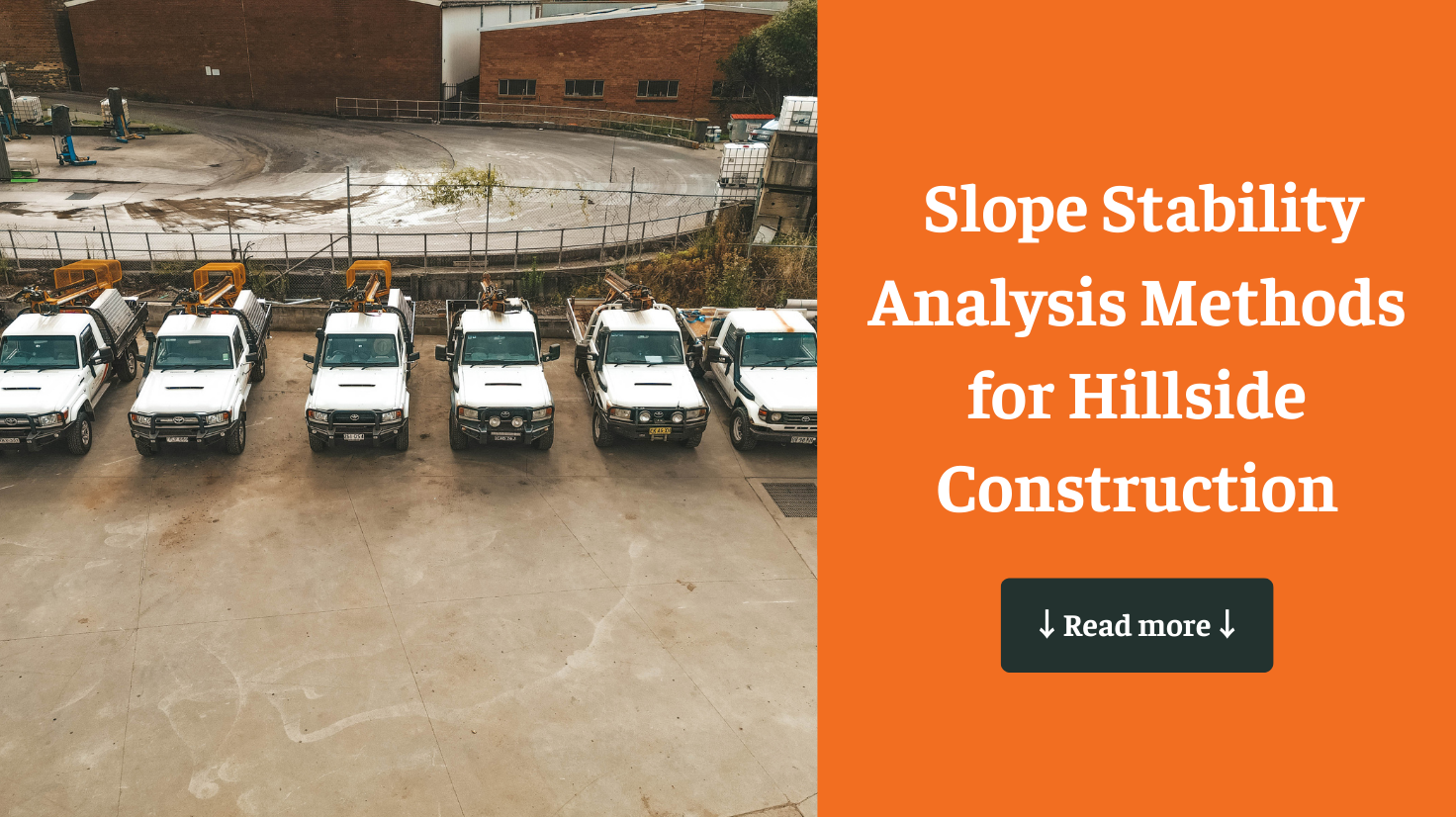Geotechnical services are essential for the stability and safety of any construction project. At Ideal Geotech, a NATA-approved service provider, we offer a wide range of testing and inspection services designed to identify potential risks and ensure that your structure is built on a solid foundation. From detailed soil testing to precise footings inspections, our services are critical for mitigating risks, complying with regulations, and achieving long-term project success.
1. Geotechnical Assessment:
Geotechnical assessments are foundational to the design and construction of any structure. This service involves subsurface investigations to determine the ground conditions at a specific site. By analyzing soil and rock properties, our geotechnical experts provide recommendations on footings, retaining walls, shoring parameters, and other crucial geotechnical data. These assessments help engineers and architects design structures that are not only safe but also cost-effective, ensuring that the chosen site can support the intended construction without unforeseen issues.
2. Shrink-Swell (Soil Reactivity):
Soil reactivity, particularly in clay soils, poses significant risks to construction projects. Our shrink-swell tests assess the plasticity and reactivity of clay soils, determining the potential for surface movement (ys). This test is vital in areas with expansive soils, where changes in moisture content can lead to significant ground movement, impacting the stability of foundations. The testing process, which can take up to seven days, provides critical data for designing foundations that can accommodate or mitigate these movements, reducing the risk of structural damage.
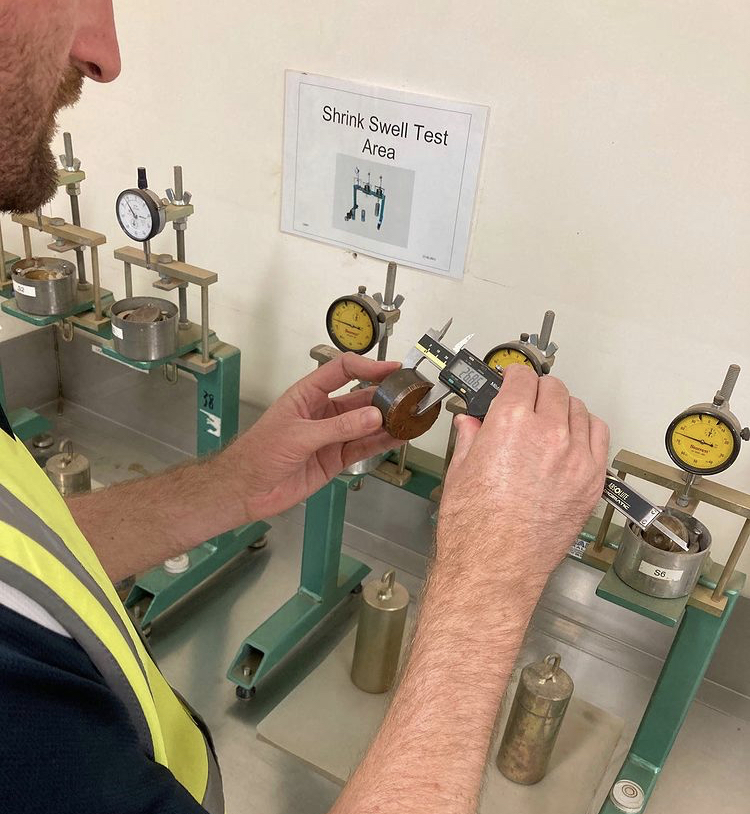
3. Exposure Classification:
Saline soils can severely impact the longevity and safety of buildings by causing the deterioration of materials like bricks, mortar, and concrete. Our exposure classification service identifies the presence of saline soil, which is crucial for planning appropriate protective measures. By understanding the saline levels in the soil, builders can implement strategies to prevent or minimise the corrosive effects, thereby extending the lifespan of the construction and avoiding costly repairs.
4. Aggressivity Testing:
Concrete and steel structures are susceptible to corrosion, which can compromise their integrity over time. Our aggressivity testing measures the potential for soil-induced corrosion by analyzing factors such as pH levels, conductivity, and the presence of chlorides and sulfates. This service is particularly important for projects involving underground structures or foundations where the soil’s chemical properties can lead to long-term deterioration. With the data from aggressivity testing, engineers can select materials and design strategies that resist corrosive forces, ensuring the durability of the construction.
5. Soil Permeability/Infiltration:
Understanding how water moves through soil is crucial for designing effective drainage and absorption systems. Our soil permeability and infiltration testing determine the rate at which water flows through the soil, providing essential data for the design of stormwater management systems, septic systems, and other drainage solutions. Proper water management is critical for preventing issues such as waterlogging, erosion, and foundation instability, particularly in areas prone to heavy rainfall or flooding.
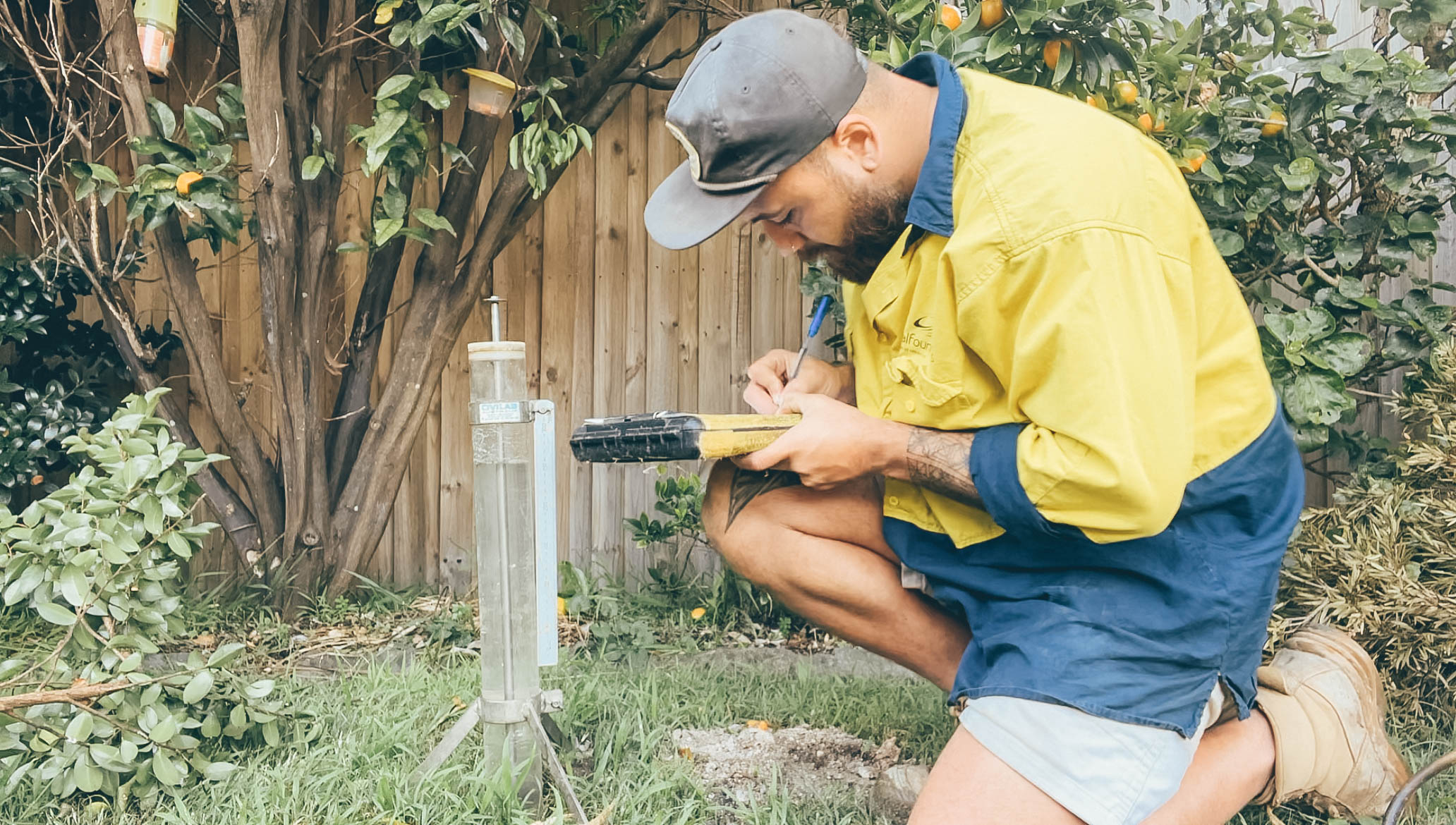
6. Footings Inspection:
Footings are the foundation of any structure, and ensuring their adequacy is vital for the building’s stability. Our footings inspection service evaluates whether the footings for new developments and existing structures are capable of supporting the designed load. This inspection confirms that the building rests on material that can bear its weight, preventing issues like settlement or uneven load distribution, which can lead to structural failure. By conducting thorough footings inspections, we help ensure that your project starts and stays on solid ground.
7. Acid Sulfate Testing:
Acid sulfate soils, when exposed to air, can undergo oxidation, leading to the release of sulfuric acid. This acid can severely affect water quality, corrode metals, and degrade concrete. Our acid sulfate testing identifies these soils before construction begins, allowing for proactive mitigation strategies such as soil treatment or the use of resistant materials. Addressing acid sulfate soils early in the project planning phase can prevent costly environmental damage and protect the integrity of the construction.
8.California Bearing Ratio (CBR) Testing
The California Bearing Ratio (CBR) test is a critical component of pavement design, assessing the bearing capacity of the soil beneath proposed paved areas. This test evaluates the strength of the soil and its ability to support roadways, car parks, and other paved surfaces. CBR testing ensures that the pavement will be durable and capable of withstanding the expected traffic loads over time, reducing the risk of premature failure and maintenance costs.
9. Pavement Design:
Pavement design involves more than just selecting a surface material; it requires careful consideration of the subgrade material and its ability to support the expected loads. Our pavement design service uses data from soil testing to develop sealed or unsealed pavements that are both durable and cost-effective. By tailoring the pavement design to the specific conditions of the site, we help ensure that roads, car parks, and other surfaces will perform well over their expected lifespan, even under heavy use.
10. Crane Pad Bearing Capacity:
Construction sites often require the use of cranes, which exert significant loads on the ground. Our crane pad bearing capacity testing assesses the soil’s ability to support these loads, ensuring that cranes can operate safely without the risk of ground failure. This service is crucial for projects involving high-rise buildings or large-scale industrial construction, where the stability of crane operations is paramount to both safety and project efficiency.
11. Subgrade Proof Roll:
Subgrade proof rolling is a compaction testing method that verifies the suitability of the soil to support development. By inspecting and analyzing the material according to Australian Standards, we ensure that the subgrade has been properly compacted and is capable of supporting the proposed structure. This service is essential for preventing issues like differential settlement, which can lead to structural damage and increased maintenance costs.
12. Bulk Lot Classification:
Bulk lot classification provides an overview of site classification across larger areas, assessing soil characteristics, soil density, and wind ratings. This service is particularly useful for large developments or subdivisions, where a general classification can guide the overall planning and design process. By understanding the broad soil conditions across a site, developers can make informed decisions about infrastructure placement, foundation design, and other critical aspects of the project.
13. Compactions – Level 1 and Level 2:
Proper compaction is essential for ensuring that the ground can bear the weight of the proposed development. Our Level 1 and Level 2 compaction services include on-site moisture/density testing and laboratory compaction testing to meet the requirements of AS 3798-2007.. These services confirm that the soil has been adequately compacted to support the structure, reducing the risk of settlement and ensuring long-term stability.
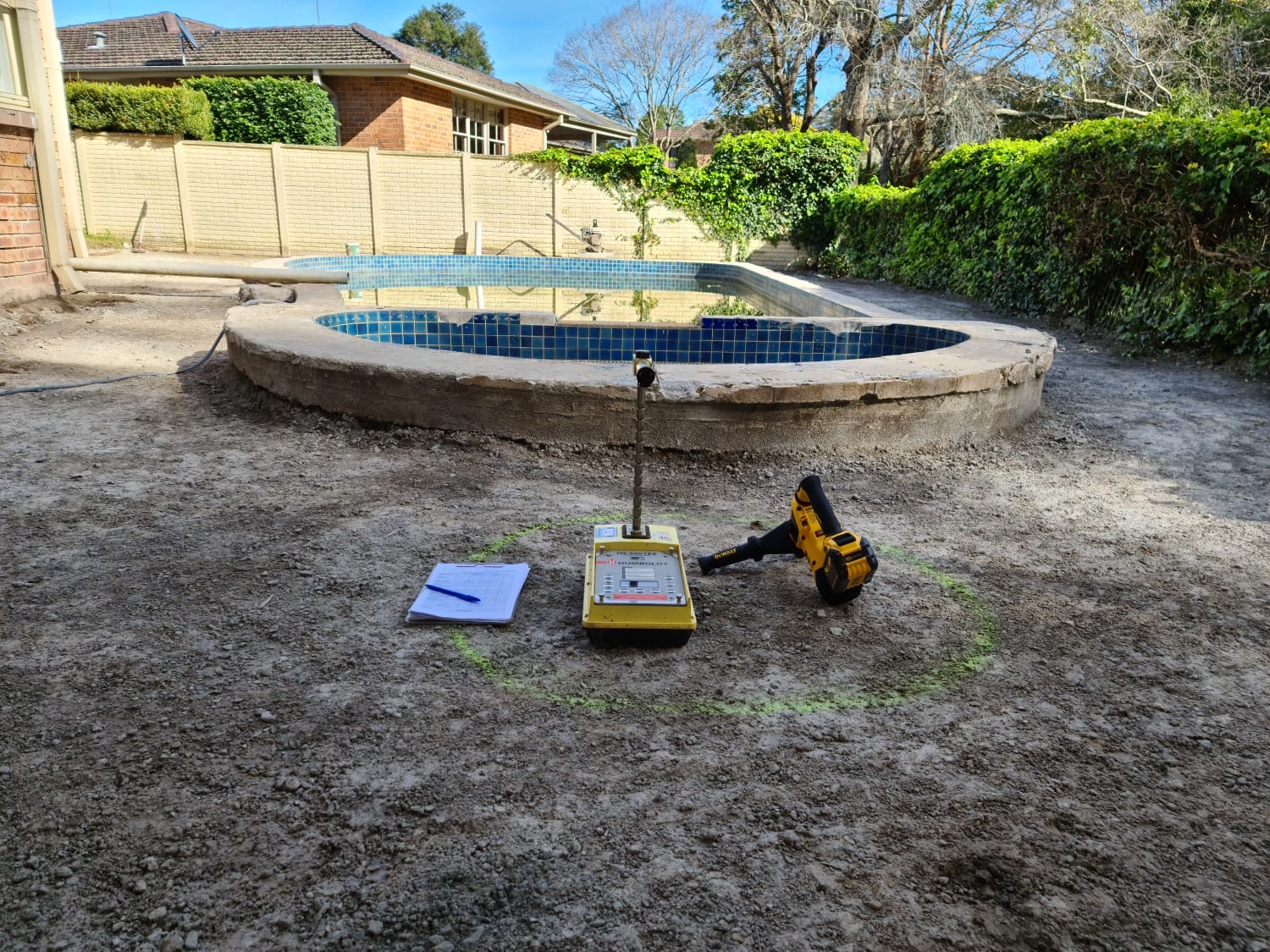
14. Conclusion
Geotechnical services are critical for the success and safety of construction projects. By leveraging these services, you can mitigate risks, comply with regulations, and ensure your project is built on solid ground.
Ideal Geotech specializes in providing these essential services, including bearing capacity assessments and footing inspections, ensuring that your construction project is built on solid ground.
Visit Ideal Geotech’s website or contact their team today to learn more about how their expertise can support your next project.
Order Our Geotechnical Services Now


